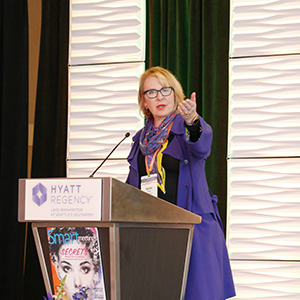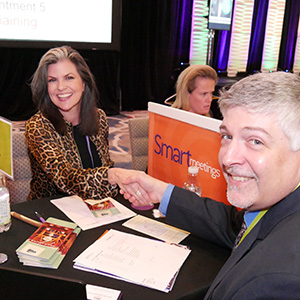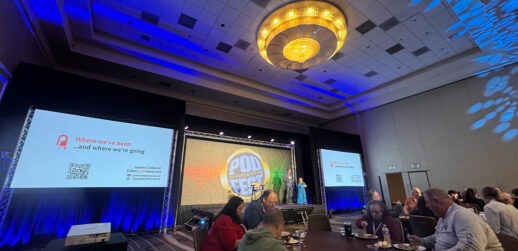Meetings pave the way for a preferred tomorrow
What is your vision of the future? Gazing into your personal crystal ball may be more important than you think, according to futurist Glen Hiemstra, kickoff speaker at Smart Meeting Northwest and author of Millennial City: How a New Generation Can Save the Future.
That is because the future doesn’t happen to us—we create it, based on our expectations. “Your vision of tomorrow changes the things you pursue today,” he said.

Hiemstra, who has consulted with the likes of Microsoft, Boeing and Eddie Bauer, shared this bit of insight on March 14 with planners and suppliers in the new Hyatt Regency Lake Washington at Seattle’s Southport, where a glass-lined conference room skirted the water.
As the group looked forward to a productive day of learning about new venues, making friends and doing business, he and Anna Liotta, the afternoon keynote and author of Unlocking Generational Codes, helped them think about how what they did in that room would impact their lives in months and years to come. The bottom line, Hiemstra said, is that the future is more knowable than we may think.
Here are highlights of the presentations at this annual gathering.
Prepare for the People of the Screen
The workforce is changing. The generation that grew up with computers will not accept the old limitations of waiting for things to happen. They know how to work around roadblocks, and expect immediate action and lots of choices. That will change how meetings are structured, Hiemstra said. It will also lead to new levels of connectivity.

“One of biggest challenges as individuals and organizations is to learn how to affect change in order to reach our preferred future, out of all the possible futures,” he said. “Driverless cars, convenient space travel, artificial intelligence—all of these things are coming.” The question is how we will integrate advances into our lives.
“In-person meetings will still be important,” he predicted. “But people will travel to get together for specific purposes, not day-to-day activities that can be done by wiggling our fingers at a laptop anywhere in the world.
“The future is not something that happens to you: It is something you do,” he concluded.
Learn Generational Code-Breaking
The new millennial workforce advancing in the ranks was shaped by a different set of cultural references than the traditionalists, baby boomers and Gen Xers who came before. Liotta explained that people operate based on the generational codes in place when they entered the workforce. “There is not a right way or wrong way to communicate, but those who will be successful will be able to toggle between generational codes,” Liotta said.

What did that mean for the meetings professionals of all ages finishing up their beeted salmon on a beautiful Wednesday afternoon? If you are talking to a millennial, cut to the chase and add value right away. If you are talking to a boomer, lead with a little self-disclosure and establish a relationship before getting down to business.
And don’t forget that Gen Xers are reaching the age where they are the decision-makers holding the purse strings. So, even though their numbers may be sandwiched between two larger groups, they cannot be dismissed.
The good news is that all employees share some common languages. Regardless of age, almost everyone is looking for meaning in work, Liotta said. Employees want to make an impact. Employers who find a way to be employees’ “be cause” reason for getting up in the morning will be the ones to retain that talent.




